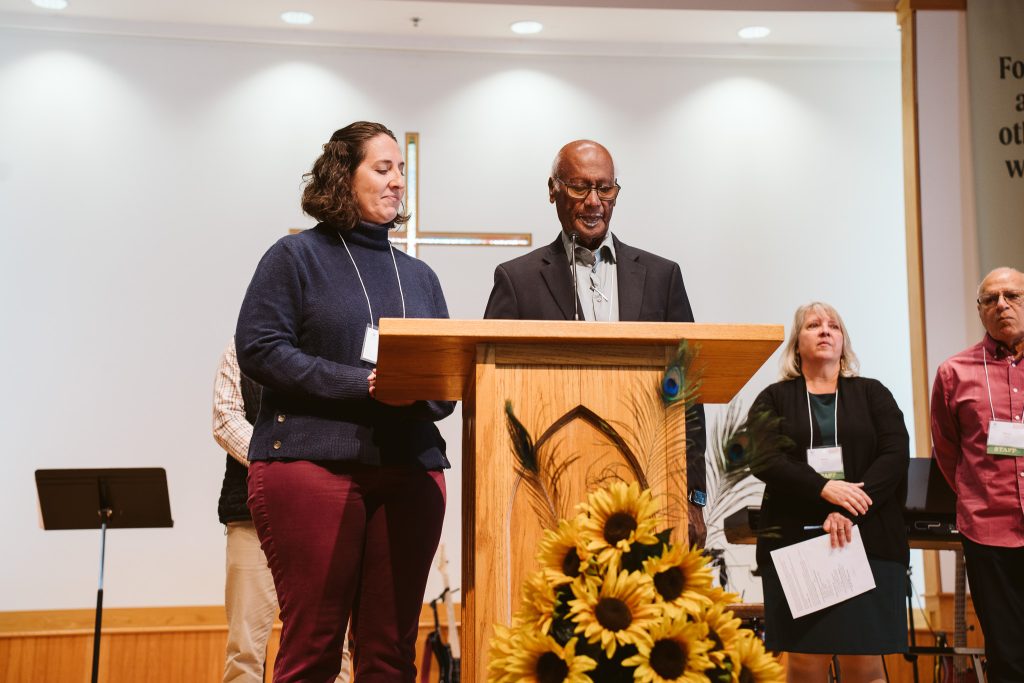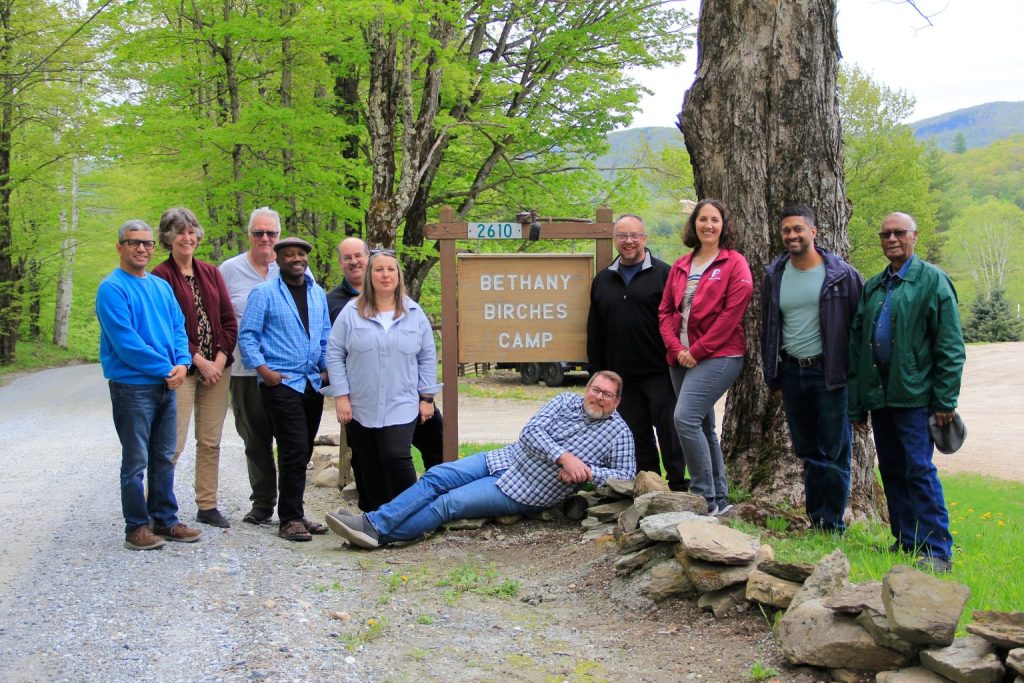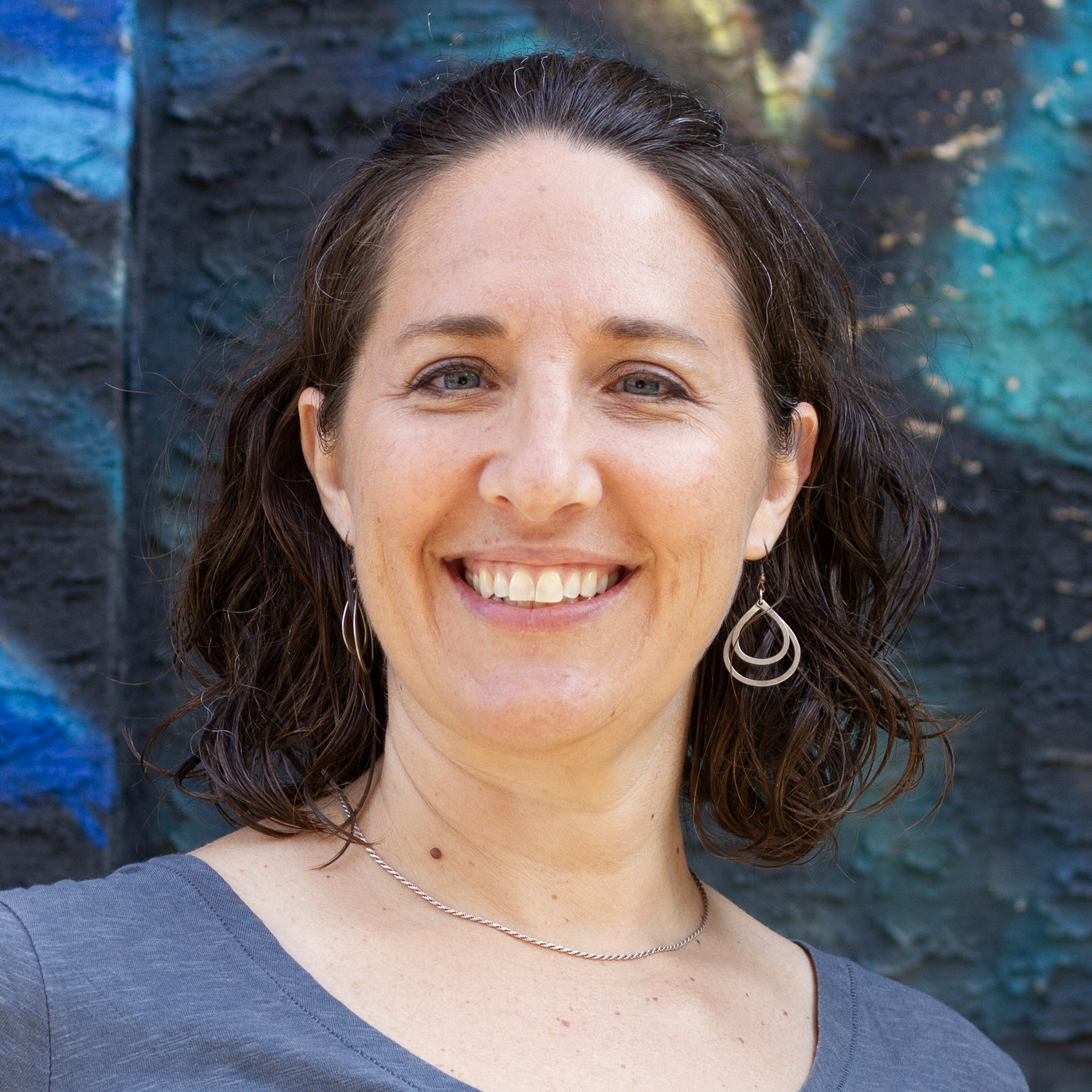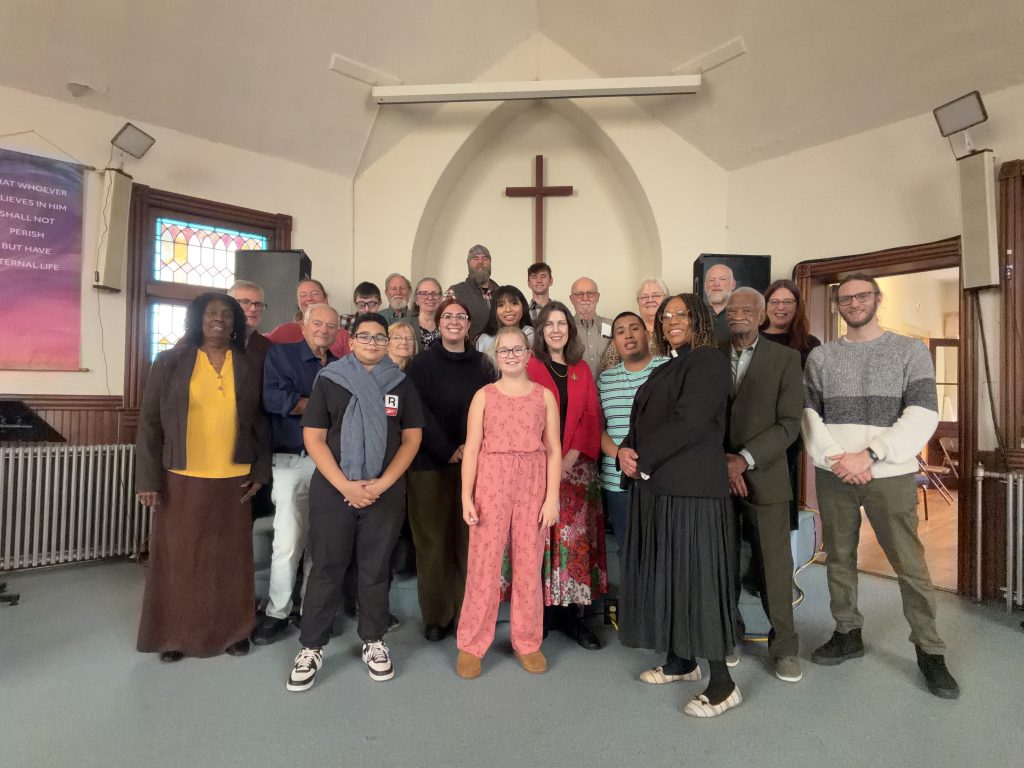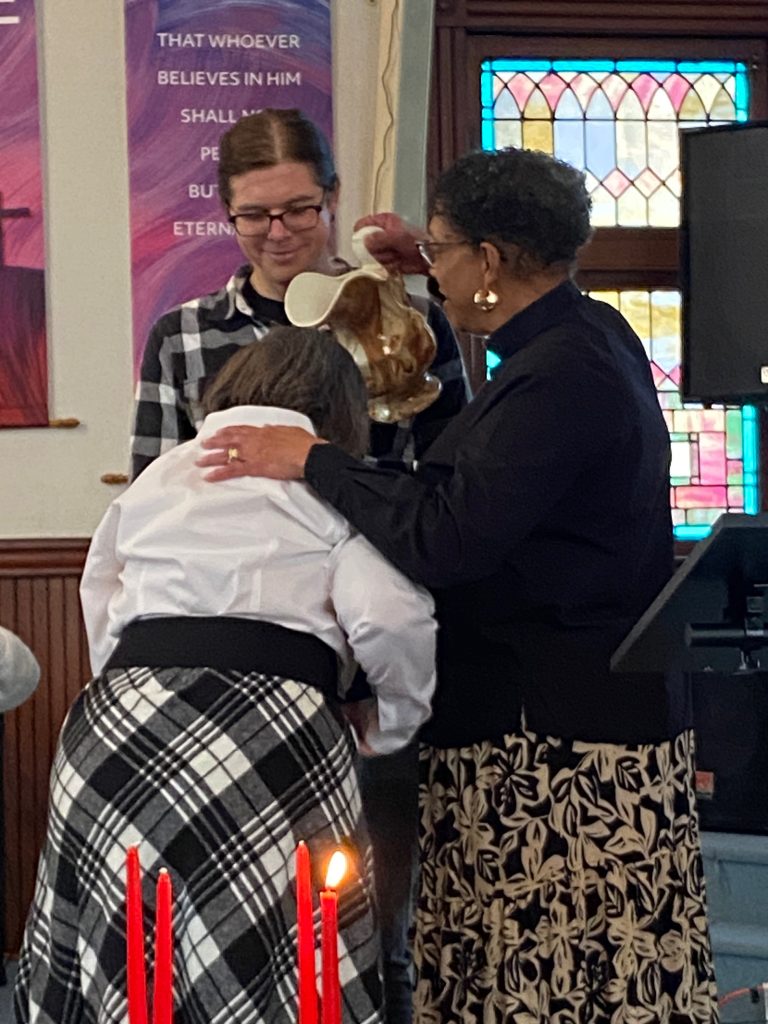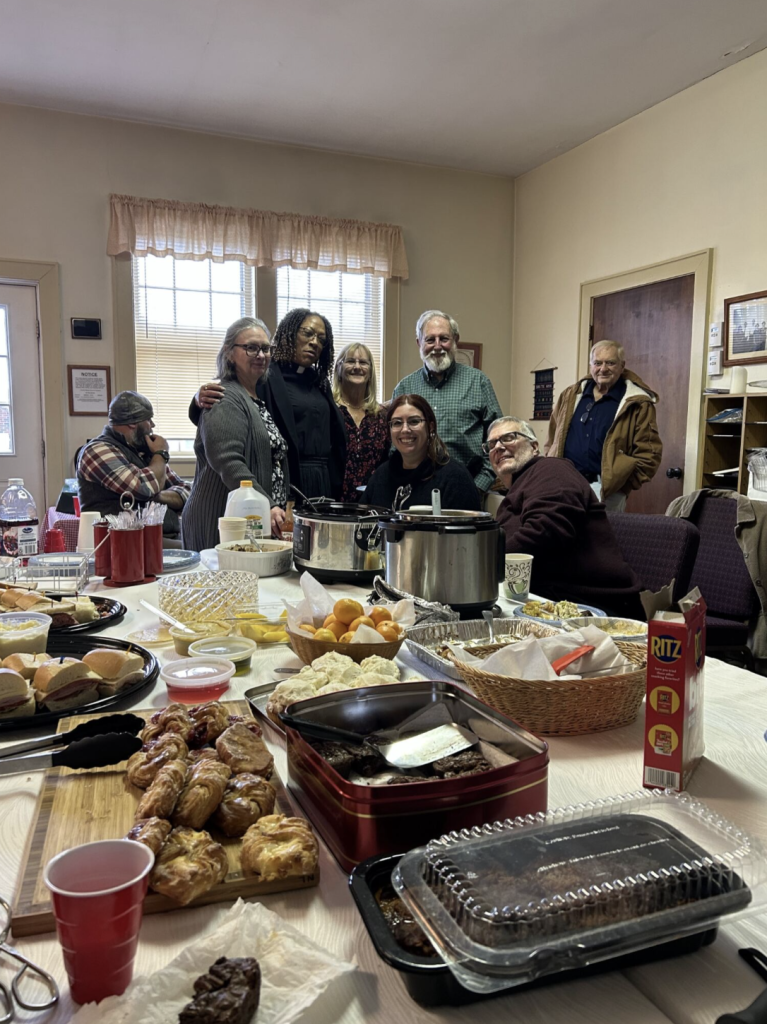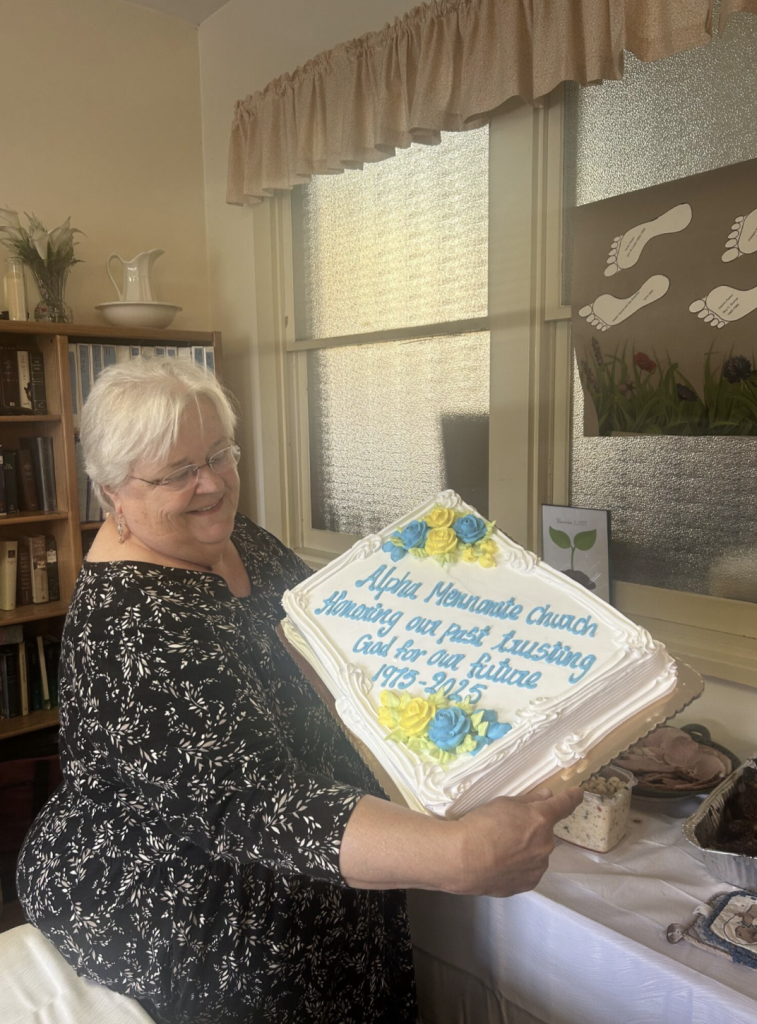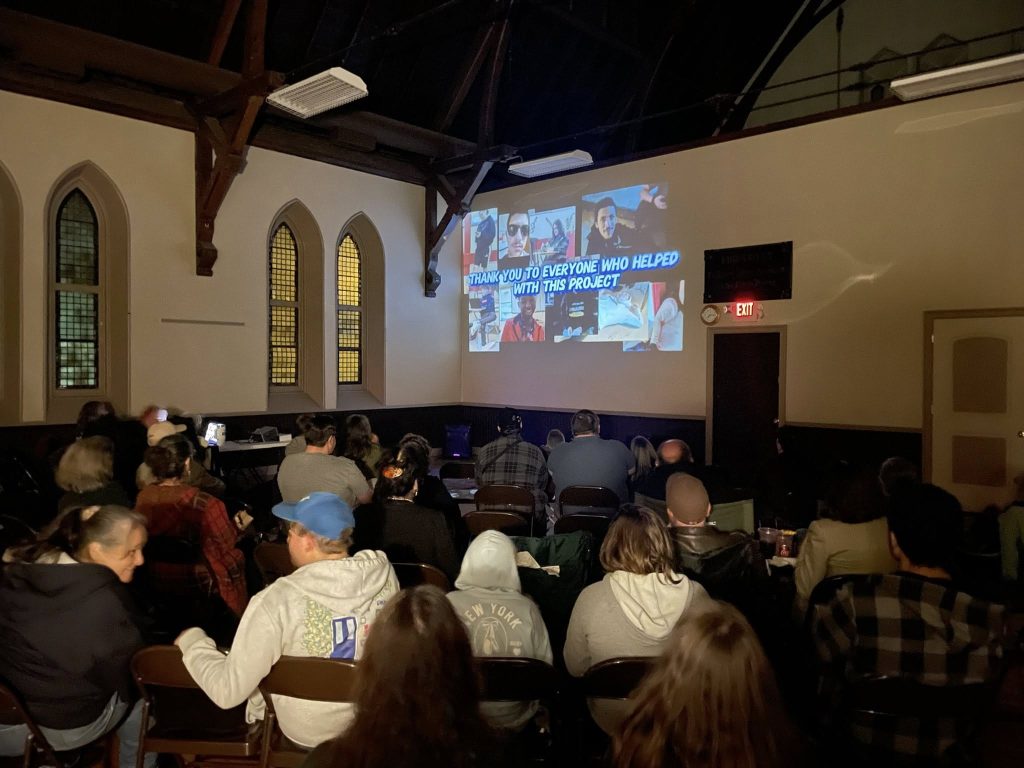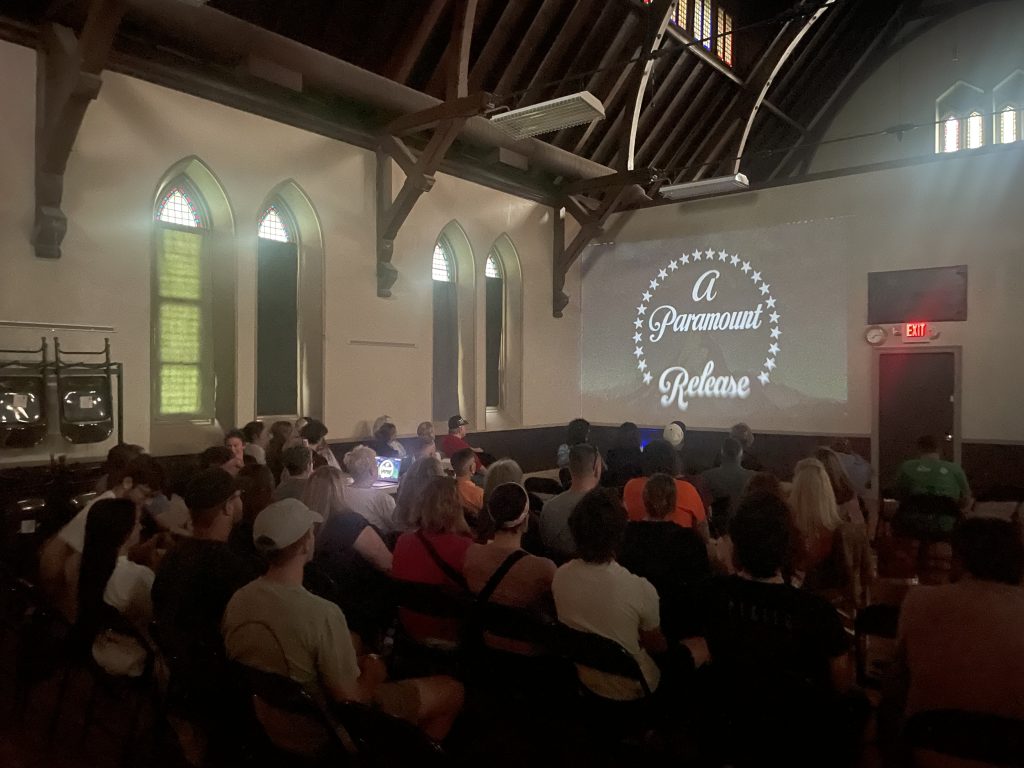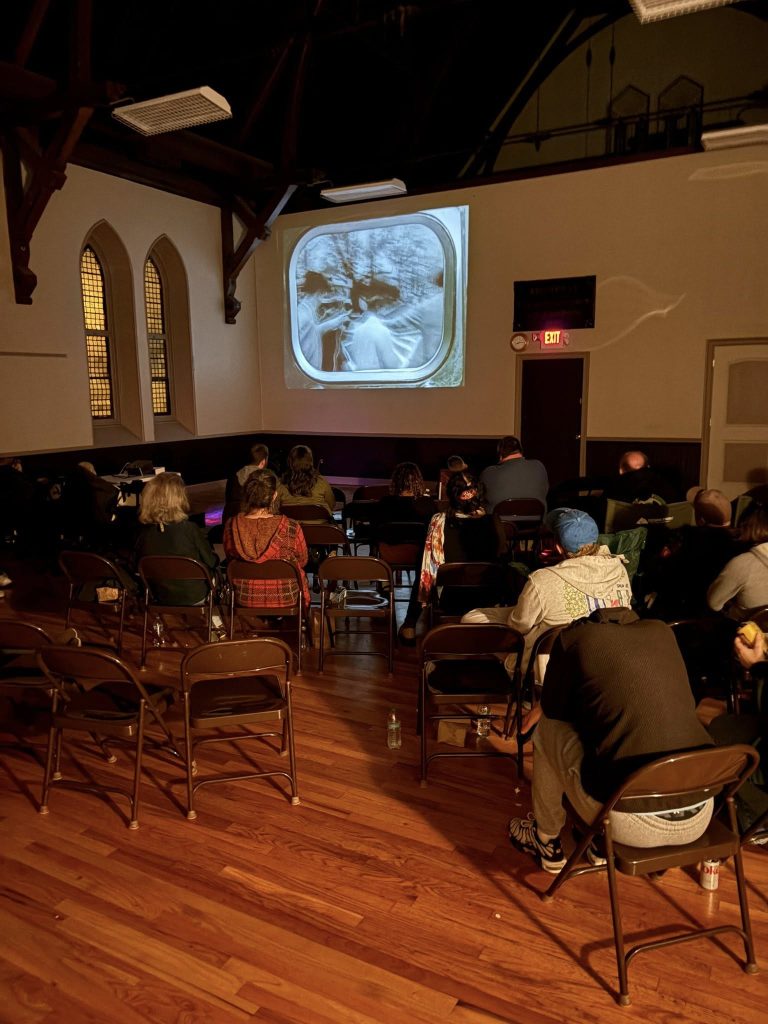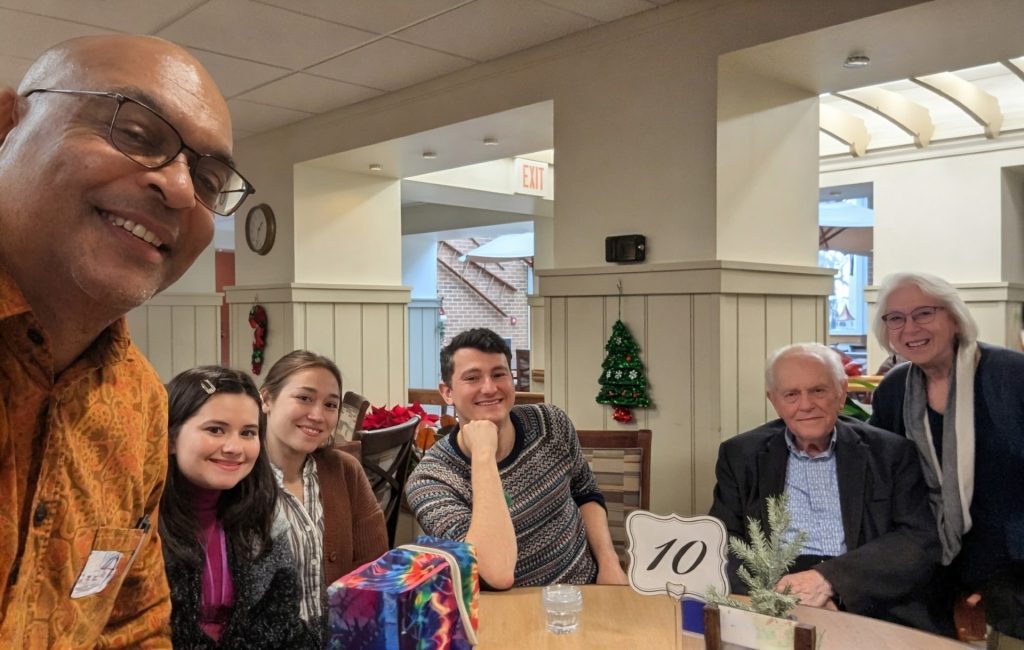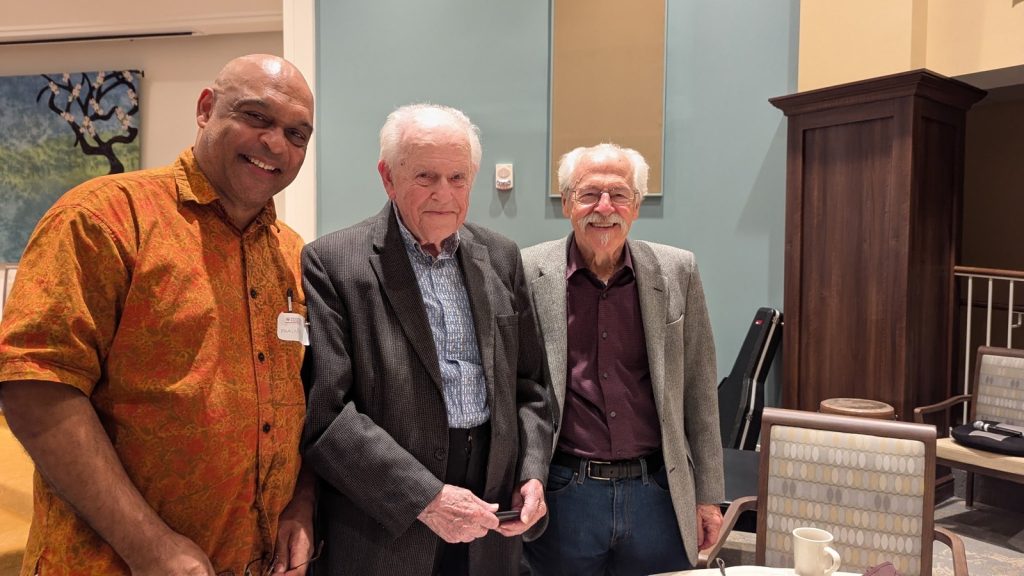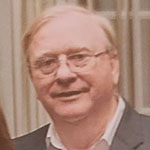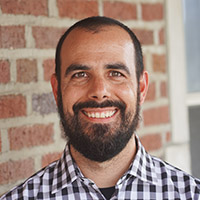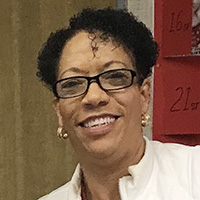The Ordination of Kevin Opett
by Noel Santiago
On a rainy afternoon on Oct. 11, 2025, at The Church of the Good Samaritans (Holland, PA), friends, close church family members, colleagues, and guests gathered to witness the ordination of Kevin Opett. Despite gray skies, the room was warm with anticipation, celebrating God’s transformative work in a life once broken and now made whole.
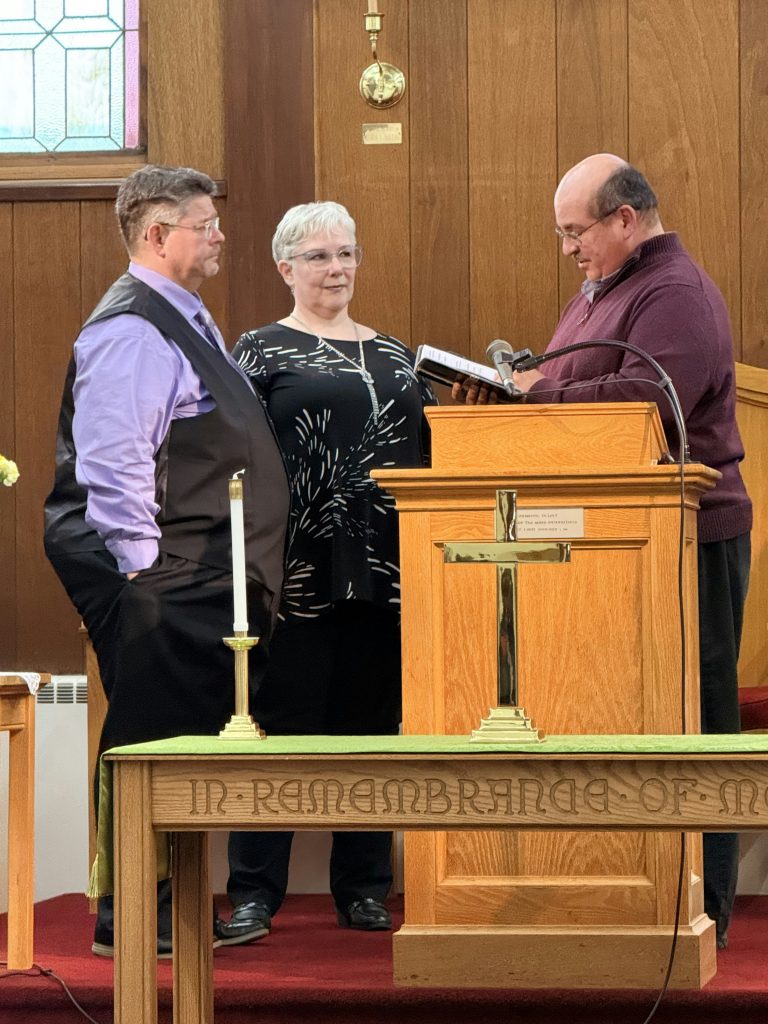
Opett’s journey is a testament to God’s redeeming power. Born in Abington, PA, in 1971 and raised in a blended family, Opett moved frequently along the East Coast as his father served in the Navy. As a teenager, an invitation to a youth Bible study led him to encounter Jesus in a deeply personal way, sparking a lifelong commitment to follow Him. He earned a B.A. in Secondary Education and Biblical Studies from Mid-America Christian University in 1995 and later a Master of Divinity from Biblical Seminary in Hatfield, PA.
During a trip to Germany in 2000, Kevin met Petra, who would become his steadfast partner in life and ministry. Ordained by the International Baptist Convention in 2004, he served with other pastors in Stuttgart, Germany for 10 years before returning to the U.S. to pursue a master’s degree. After being sent back into vocational ministry in 2021 by his home church, Oxford Circle Mennonite in Philadelphia, he received licensing and ordination through the Mosaic Mennonite Conference, serving in a congregation in New Jersey before becoming the pastor of Good Samaritans in June 2024.
The message for the afternoon was delivered by a fellow seminarian and best friend, Rev. David Grimes, based on 2 Corinthians 4:1-18 and titled “A Faithful Calling.” Grimes highlighted how God calls and commissions us not because we are perfect, but because God’s power is revealed through our weaknesses. The rainy afternoon seemed almost symbolic, echoing the truth that light shines brightest when clouds gather.
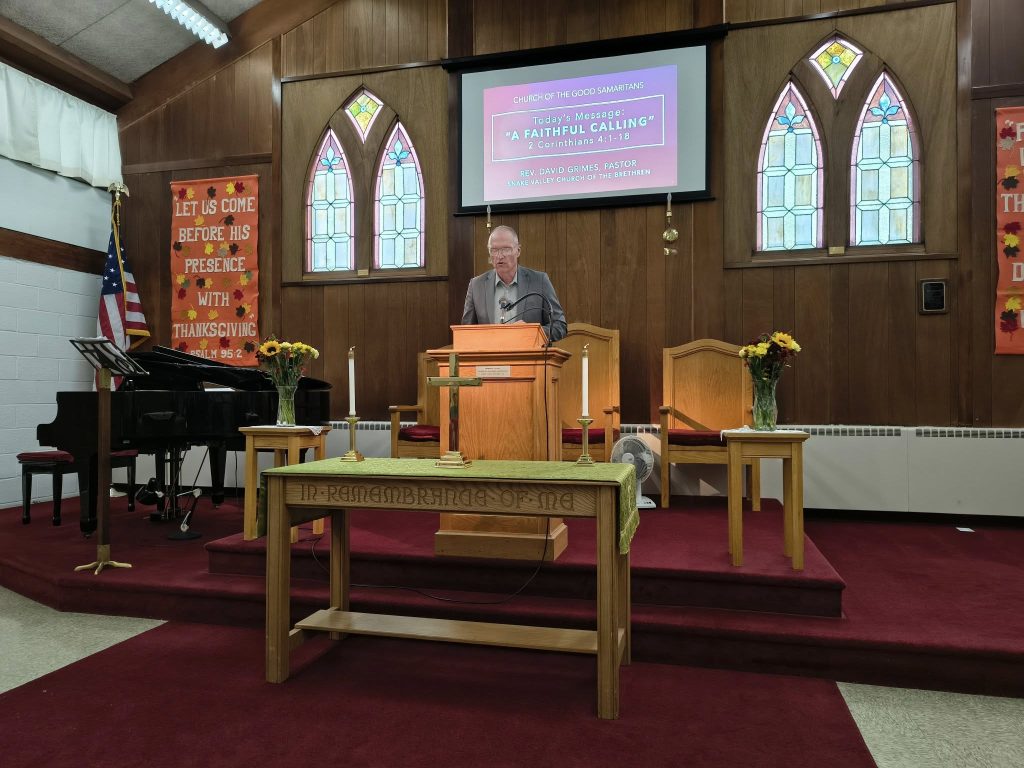
Colleagues who have walked alongside Opett shared heartfelt reflections of fights and tears, lessons learned, and bonds deepened through shared challenges. Their stories echoed the message that God calls, shapes, and commissions through every circumstance, even the painful and messy ones.
For Petra, the ordination marked a milestone in finding a home in a community that embraces her and the family she supports. Ministry, the afternoon made clear, is never an individual journey but a shared one, where the love and support of family and friends amplify God’s calling.

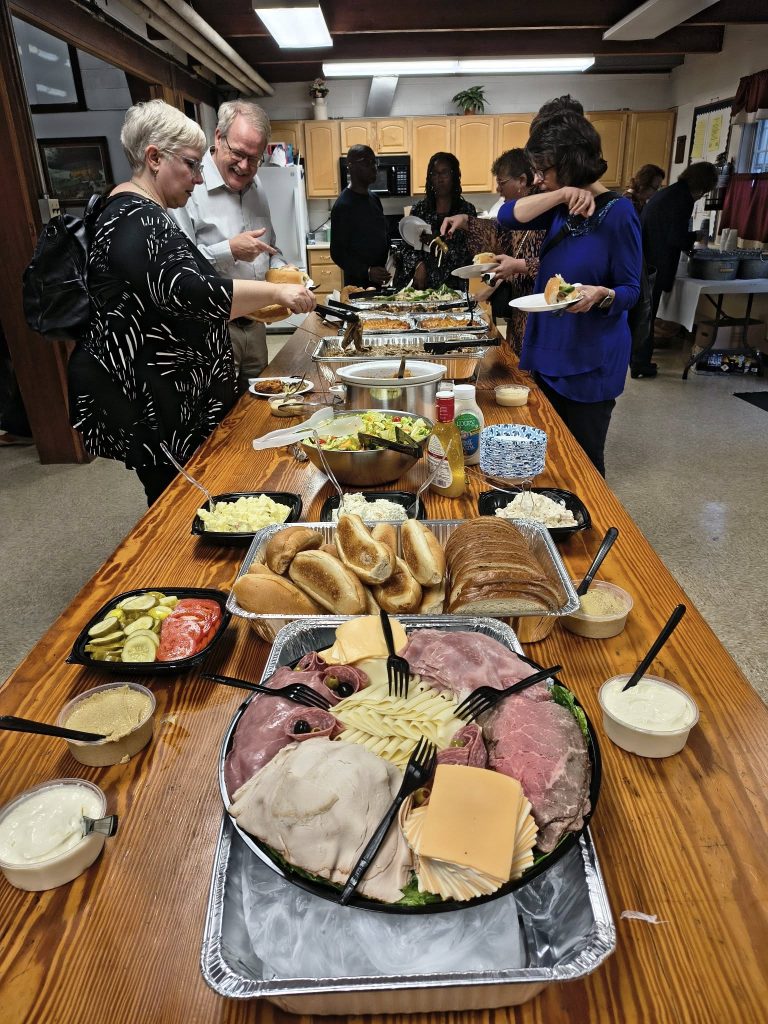
As Opett received the laying on of hands and the charge to serve, the room resonated with hope and affirmation. He is a man once broken, now walking boldly in God’s calling, a living testimony that in God’s hands, brokenness is never the end.
Opett’s story and the afternoon’s message remind us all: we may be broken, but through God’s faithfulness, we are not destroyed.
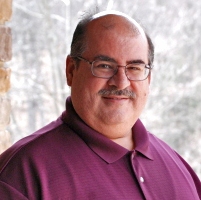
Noel Santiago
Noel Santiago is the Leadership Minister for Missional Transformation for Mosaic Conference.
Mosaic values two-way communication and encourages our constituents to respond with feedback, questions, or encouragement. To contact Noel Santiago, please email nsantiago@mosaicmennonites.org.

